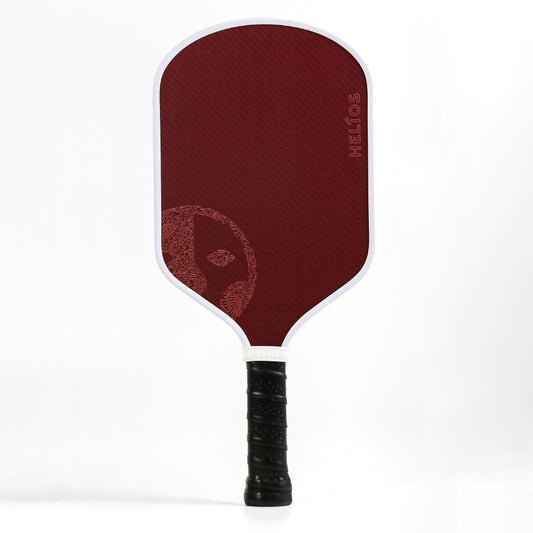Understanding Round Robin Tournaments in Pickleball: A Complete Guide

Pickleball has rapidly become a favorite sport for many, blending elements of tennis, badminton, and ping-pong into one exciting game.
In a pickleball round robin, every player or team competes against all other participants. This ensures a fair and comprehensive competition where skill levels are thoroughly tested.
But, what is a round robin tournament in pickleball, and how does a round robin tournament work?
Unlike single or double elimination tournaments, where a single loss can knock a player or team out of the running, round robin tournaments guarantee multiple matches for all involved.
Benefits of Playing In A Round Robin Tournament
Lengthy Play Session
The round robin format is especially advantageous since it ensures greater playing time than elimination-style tournaments. Every participant or team faces off against all other competitors, which not only maximizes the time spent actively involved in the sport but also offers plenty of chances to practice and refine skills in a competitive environment.
This ongoing practice is essential for both beginners seeking experience and experienced players aiming to sustain or enhance their skills.
Equitable Evaluation of Competency Levels
A major benefit of a round robin tournament is the fair evaluation of abilities it provides. As every player or team competes against all others, the results better represent steady performance throughout the tournament instead of just the results of a handful of matches.
The format reduces the influence of random losses or victories and aids in establishing a ranking that accurately reflects the skill levels of the competitors, guaranteeing that the top performers receive proper recognition.
Varied Competition
The diverse range of opponents in a round robin tournament introduces players to various styles, strategies, and competition levels. This experience is essential for cultivating a comprehensive range of skills. Players develop their strategies and enhance their immediate decision-making skills as they encounter various playing styles, from aggressive assailants to defensive competitors.
Flexibility is essential for comprehensive player growth and can greatly improve an individual's comprehension and methodology toward the game.
Fostering Community
Aside from the competitive elements, round robin tournaments are essential in promoting a sense of community and friendship among participants. This structure promotes engagement among all competitors, even more than standard knockout competitions, since every participant stays in the event until the conclusion.
Obstacles Players Encounter in Round Robin Competitions
Although round robin tournaments offer benefits, they also present unique challenges that players must manage.
- Physical Stamina : Participating in several contests can be physically taxing. Sustaining energy levels during the tournament is essential for steady performance.
- Time Dedication : These competitions may require more time than knockout formats. Being ready for an entire day of activity aids in managing expectations and guarantees you're both mentally and physically prepared.
- Complexity of Scheduling : Creating a round robin schedule demands meticulous organization, particularly when there are many participants involved. Holds may happen if the timetable isn't carefully organized.
How To Organize A Pickleball Round Robin Tournament?
Organizing a round robin tournament involves several key steps to ensure a smooth and enjoyable event.
- Determine the Number of Participants: Knowing the exact number of players or teams is essential. This affects the total number of matches and the overall schedule.
- Create the Tournament Schedule: Develop a round robin schedule where each player or team plays every other participant. There are software tools available that can help generate this schedule efficiently.
- Set Clear Rules and Guidelines: Establish the rules of play, scoring systems, and any tie-breaker procedures. Clarity from the start prevents confusion during the tournament.
- Prepare the Venue and Equipment: Ensure there are enough courts and equipment to handle all the matches. Adequate preparation minimizes delays and keeps the tournament running smoothly.
- Communicate with Participants: Provide all players with the schedule, rules, and any other important information ahead of time. Open communication fosters a better experience for everyone involved.
Strategies For Success In A Round Robin Tournament
Excelling in a round robin tournament requires more than just skill with a paddle. Here are some strategies to enhance your performance.
- Manage Your Energy Levels: With multiple matches to play, pacing yourself is vital. Stay hydrated, eat nutritious snacks, and rest between games to maintain peak performance.
- Study Your Opponents: Take the opportunity to watch other matches. Observing different playing styles can give you insights into how to approach each opponent.
- Stay Consistent: Consistency often trumps sporadic bursts of excellence. Focus on maintaining a steady performance throughout all your matches.
- Adapt Your Strategy: Be prepared to adjust your playing style based on your opponent's strengths and weaknesses. Flexibility can give you a significant advantage.
- Use Quality Equipment: Having the right gear can improve your game. Consider paddles like The Gaia for recreational control or The Athos for enhanced power.
Conclusion
Understanding and participating in a round robin pickleball tournament can significantly enhance your enjoyment and mastery of the game. The format offers a fair competition, ample playtime, and the chance to connect with a wide range of players.
Whether you're organizing a tournament or getting ready to compete, embracing the round robin format is a fantastic way to dive deeper into pickleball.
Ready to elevate your game? Check out The Helios Pickleball Paddles for options that suit every skill level.
FAQs
How do you play a pickleball round robin tournament?
In a pickleball round robin tournament, the format involves every player or team playing against each other. This ensures that everyone competes an equal number of times against all other participants, providing a comprehensive opportunity to measure skill levels and performance across the board. Matches are usually scheduled ahead of time, with the organizer ensuring that each participant knows whom they will face in each round of the competition.
What are the rules for round robin tournaments?
The essential rule in round robin tournaments is that each participant faces every other participant. This can apply to both singles and doubles formats. Scoring in these tournaments can be determined by several factors:
- Points won: Each game won contributes points to a player's or team’s total score.
- Matches won: The number of matches won over the course of the tournament.
- Combination scoring: Both points and matches won contribute to the final standings.
How long does a round robin pickleball tournament take?
The duration of a pickleball round robin tournament largely depends on the number of participants and the length of each match. For instance: A small tournament with fewer participants might only take a few hours to complete. A larger tournament with more participants could span an entire day or potentially multiple days, depending on the scheduling and number of courts available.
How do you win a round robin tournament?
Winning a round robin tournament hinges on consistency and overall performance. The player or team with the best record after all matches have been played is declared the winner. The record is based on the criteria set before the tournament, such as most matches won or highest points accumulated. This format rewards consistent performance across all games rather than just a few significant victories.
What is the main advantage of a round robin format?
The primary advantage of the round robin format is its comprehensive nature, allowing for extensive play and interaction among participants. This format guarantees that all players have equal opportunities to compete against each other, minimizing the impact of a single loss. Moreover, it provides a more thorough assessment of each participant’s abilities by averaging their performance over several games rather than a single elimination moment, which can sometimes yield skewed results due to bad luck or an off day.





